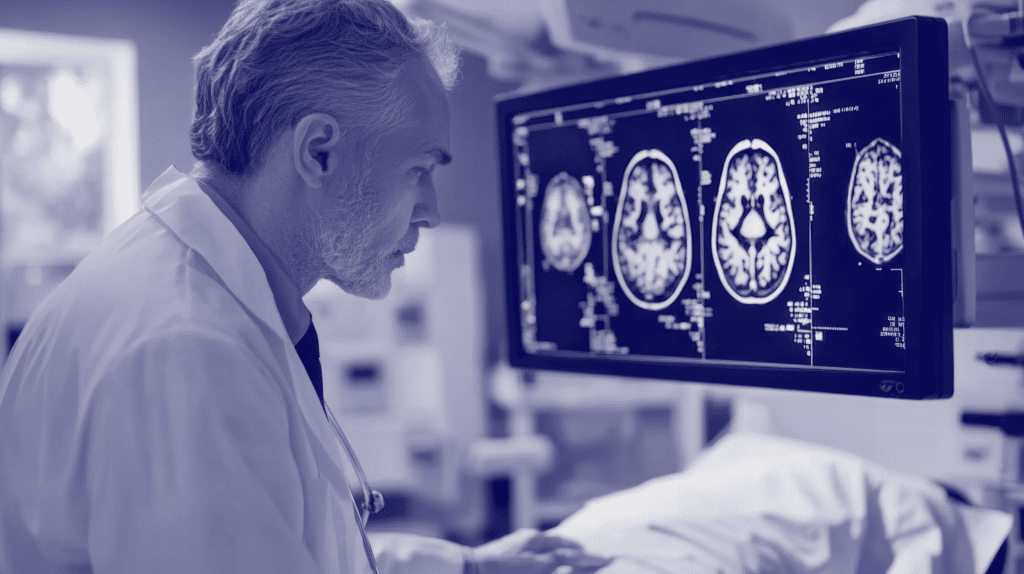Our Services
Neuroscios
Built for Neurological Clinical Research
At Neuroscios, every element of our service model is designed with one purpose in mind: to support smarter and faster neurological drug development.
We combine scientific expertise, operational excellence and a world-class team to enable seamless execution across disciplines, timelines, and geographies.
Whether you’re designing your first-in-human trial or advancing a late-phase program, we align closely with your goals, adapt to your model, and drive results that move neuroscience research forward.
The Power of Sanos
End-to-End Delivery, Without Outsourcing Gaps
As part of Sanos, Neuroscios operates within a unique clinical trial ecosystem. We have integrated many of the core functions in-house: dedicated clinical research sites, clinical trial supply, patient recruitment, and eCOA. With Sanos, we eliminate the friction that often slows down study delivery.
What We Offer
At Neuroscios, we provide full-service clinical trial delivery tailored to the complexity of neurological clinical research.
Study Design & Protocol Development
We collaborate closely with sponsors to develop scientifically sound and regulator-ready protocols. Our team supports every step—from endpoint selection and statistical planning to adaptive design and submission strategies—tailored specifically to the challenges of neurological clinical trials.
Trial Management & Oversight
Our experienced project teams oversee the entire clinical trial process with precision and flexibility. From vendor management to site monitoring and risk mitigation, we ensure consistent execution aligned with timelines, budgets, and quality standards.
Patient Recruitment & Site Network
Access to qualified patients is a key challenge in neurology research. Through our global network of neurology sites, digital recruitment platforms, patient registries, and KOL relationships, we accelerate enrollment and support high retention across study populations.
Biomarker and Imaging Capabilities
We integrate fluid biomarkers, imaging (MRI, PET), and digital tools into study design to enhance precision and insight. This supports early signal detection, patient stratification, and the use of novel endpoints in both early- and late-phase CNS neurology trials.
Data Management, Safety and Reporting
Our services include full clinical data management, biostatistics, pharmacovigilance, and medical writing. With centralized teams and validated systems, we ensure data integrity, patient safety, and readiness for submission at every stage.
Global Execution with Sanos Integration
As part of Sanos Group, we offer an integrated trial delivery model that combines in-house clinical IMP supply, biostatistics, site support, and regulatory expertise. This setup improves oversight, streamlines processes, and gives sponsors a single, agile partner across functions and regions.

Contact Us
Connect with us to discuss how Neuroscios can support your next neurology study.

Our Approach
Discover how we manage the complexity of neurological clinical trials with scientific expertise, operational excellence and a world-class team.

Our Expertise
Learn how our deep specialization in neurological disorders shapes smarter trial execution.